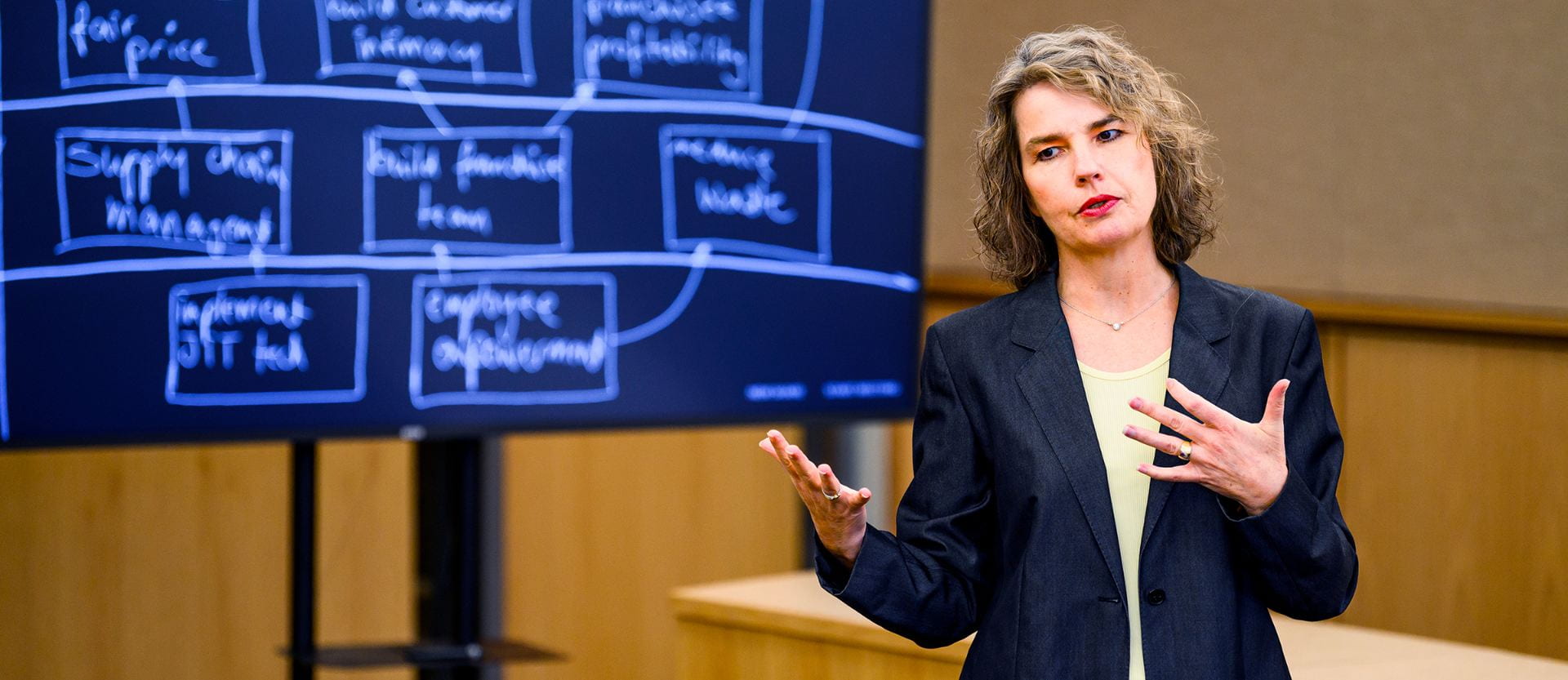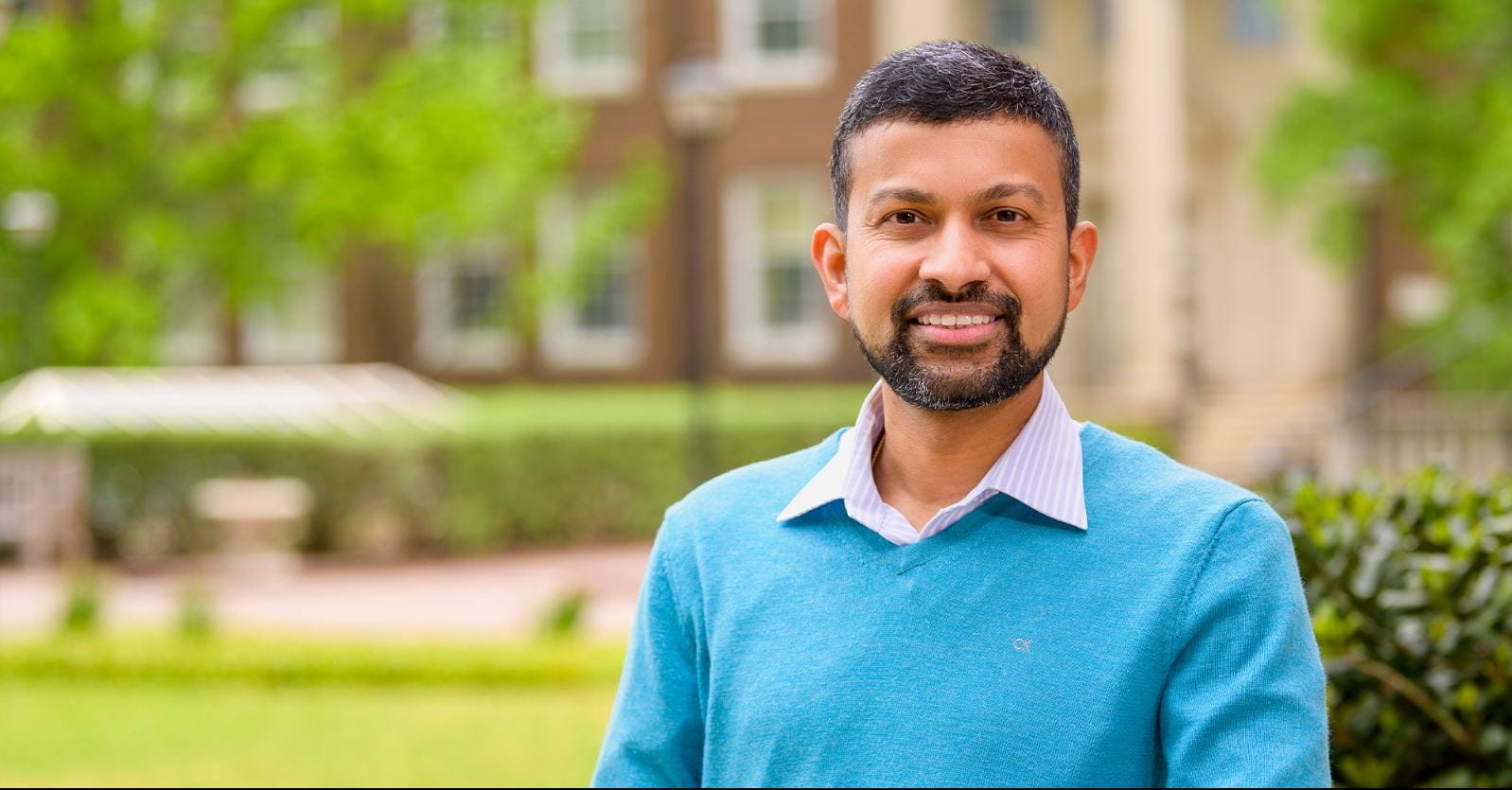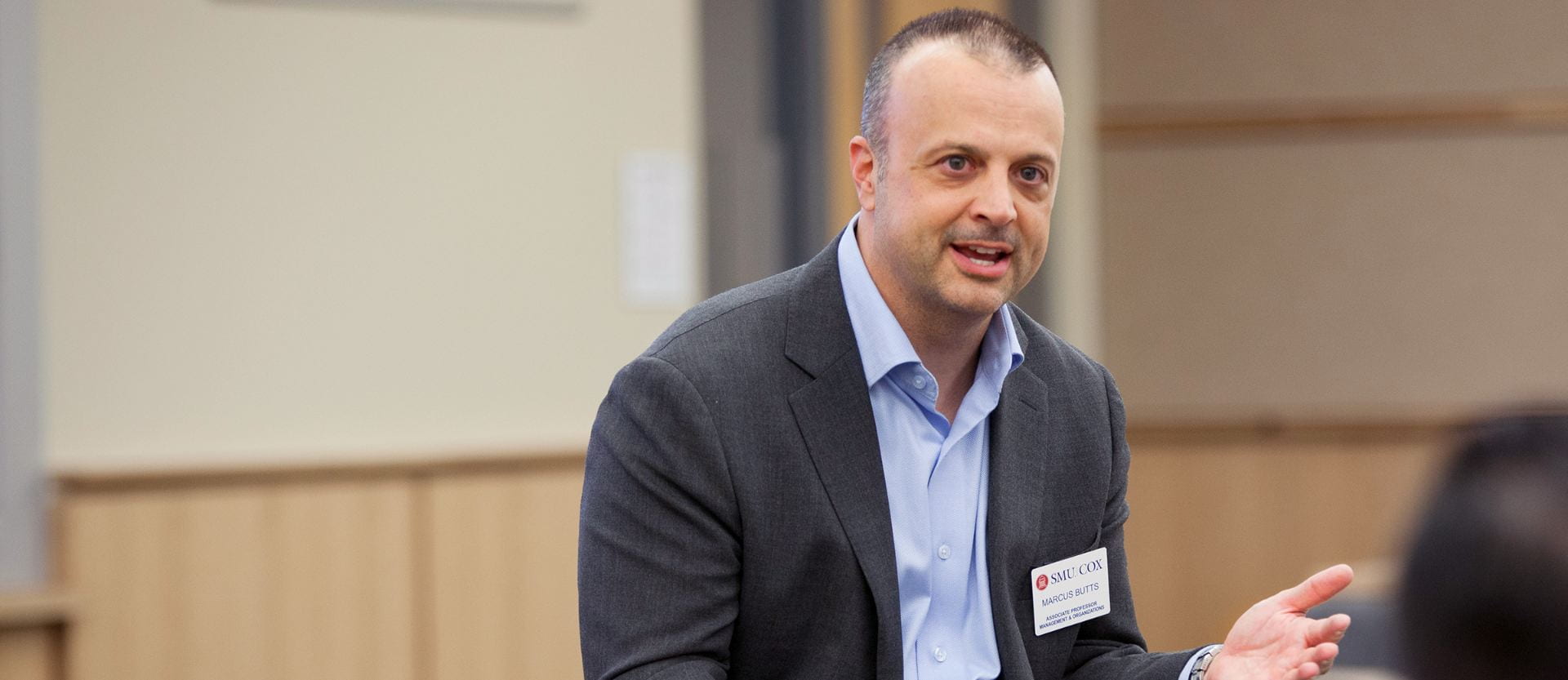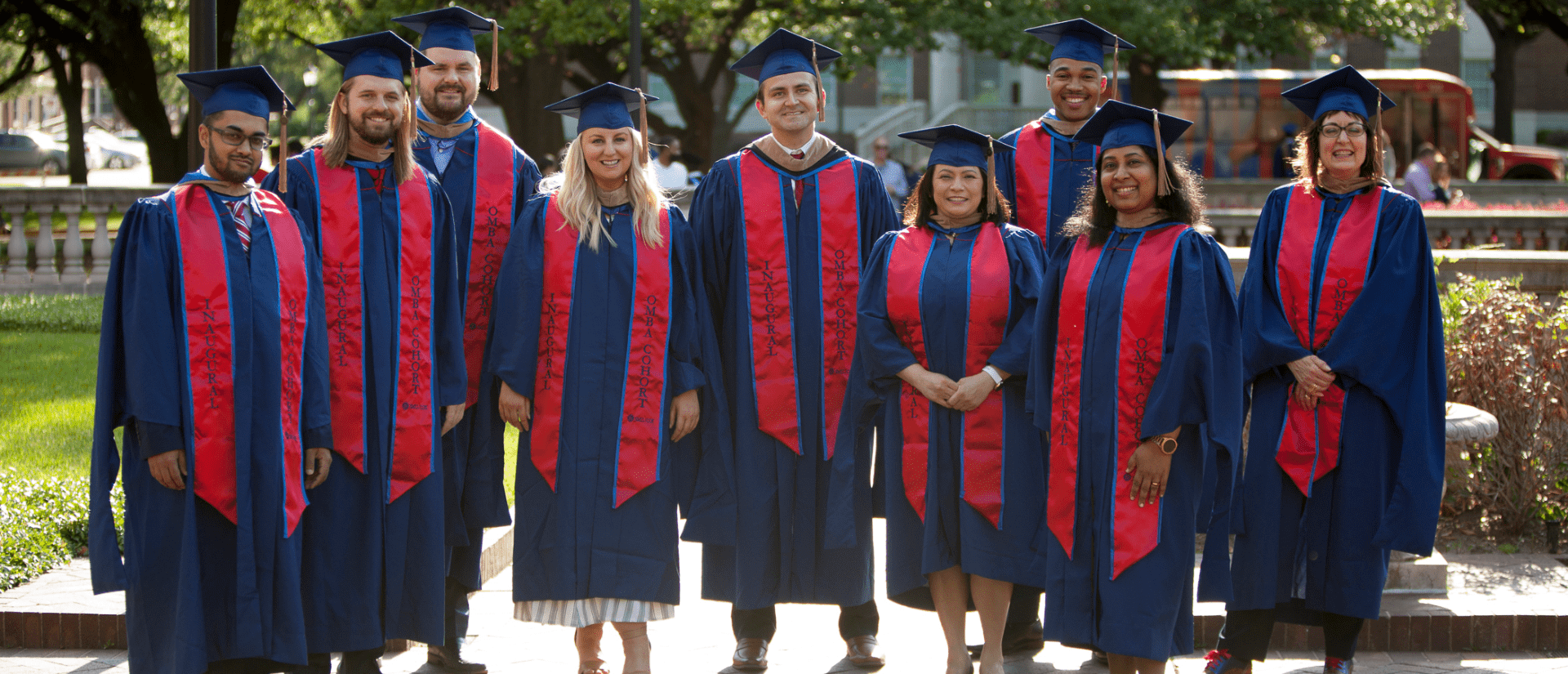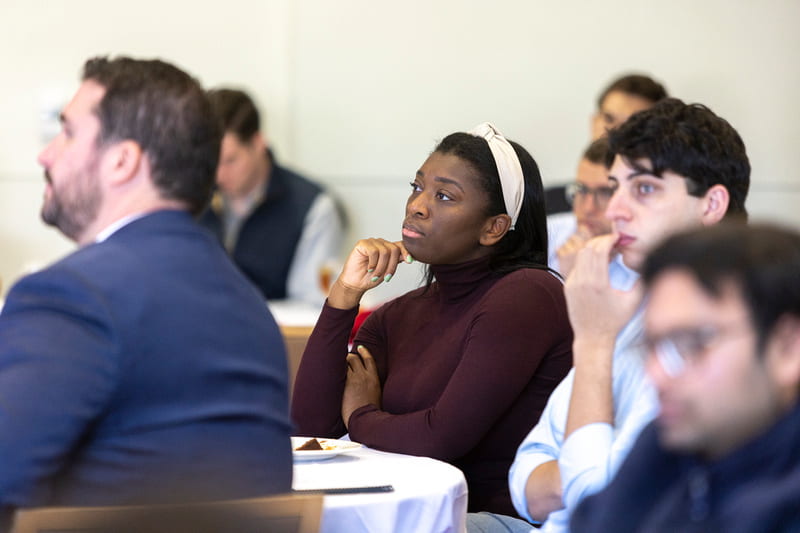How is technology changing who we are and how we interact with each other as more and more of our waking hours are spent on social media? Who are we becoming — as individuals and as members of society — the more we engage in technology-mediated spaces that are increasingly populated by social media, AI and robots? These are the kinds of questions that fascinate Ulrike Schultze, a professor in information technology and operations management (ITOM) at SMU Cox.
This summer, Schultze was made full professor at the Cox School. The promotion, says Schultze, will allow her to work on more ambitious projects than ever before. “It provides me a platform that makes it possible for me to think much bigger than I’ve allowed myself to think in my career thus far,” she says.
A Different Approach to Technology
Schultze came to Cox in 1997, after receiving her PhD in management from Case Western Reserve University; in 2004, she was awarded tenure. Over the years, her research has been published in leading information systems journals such as Information Systems Research and Management Information Systems Quarterly — and she is currently serving as a senior editor at a number of journals, including the Journal of the Association of Information Systems.
The Dallas area, with its enormous range and diversity of business organizations, has been the perfect home for Schultze, whose research is directly related to how technology impacts people and groups. She has looked at everything from the implications of self-serve technology on the customer-provider relationship to the ways in which virtual reality environments shape identity work. Working alongside colleagues in both academia and the corporate world, Schultze is moving beyond the traditional questions about technology — How do we best design and build it to fulfill certain objectives? — to exploring what technology is and what it does when it is put into the wild. “We frequently talk about the unintended consequences, if not outright failure, of technology implementation,” she says. “It’s that aspect of digitalization that I try to understand at the individual, organizational and societal level.”
To that end, Schultze studies a broad swathe of technologies including sharing economy platforms, blockchain and virtual worlds. She is currently looking at the different ways that AI and “algorithmic phenomena” are impacting and will continue to impact all of our lives. In projects, she examines the ethics of using AI in hiring. “That’s something that, of course, really impacts my students,” she says.
Digital Transformation and Its Effects
Schultze has several other research projects in the works, some of which will be done in collaboration with doctoral students from other countries. In the coming years, she hopes to continue to focus on who we’re becoming in the face of increasing digital transformation, and how to make digital transformation more effective for individuals, groups – including protest movements, organizations and the environment.
To accomplish this research agenda, Schultze insists that we need to abandon our idea of technology as a “thing” that is separate from and under the control of the user. Instead, a conceptualization of technology and users as an entangled configuration that emerges out of their interaction is needed. “I become a certain kind of person – both to myself and to others – when I am in a virtual environment.” Schultze explains. “Similarly, social media can become tools for social revolution or for surveillance. How, under what conditions and with what effects these different configurations of people and technology occur is what motivates my research.”

